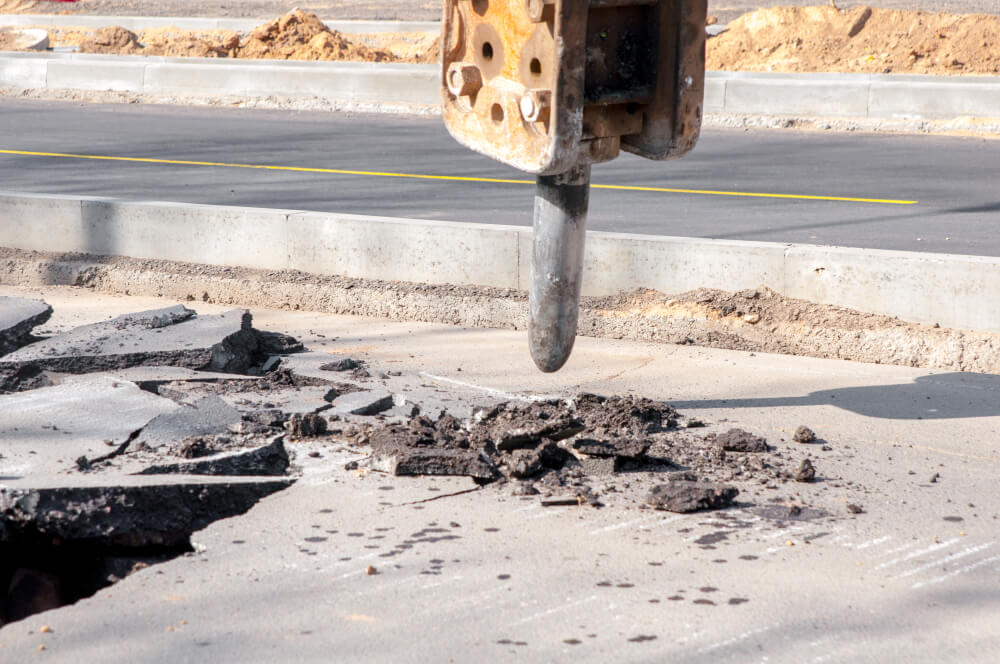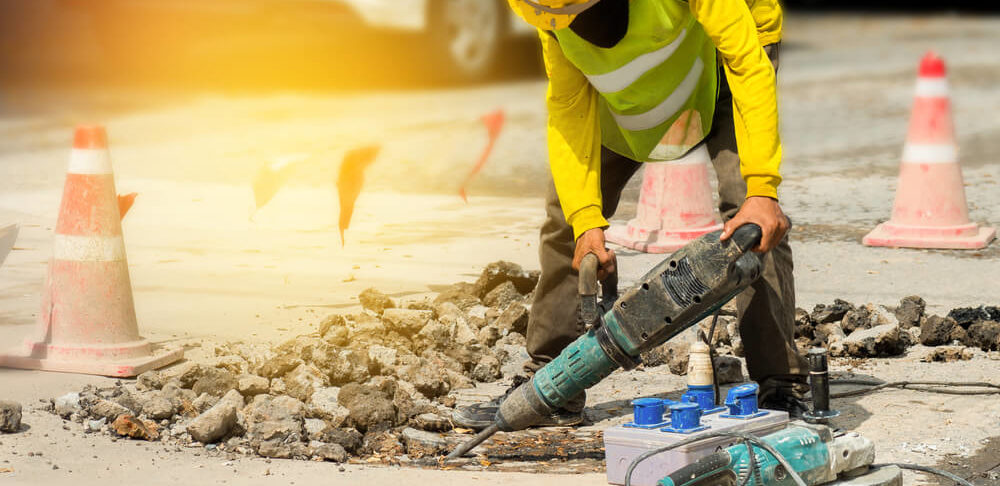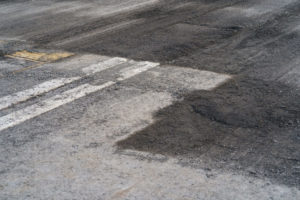Is your concrete driveway starting to show signs of cracks and worn material? Do you feel you have to avoid mini potholes at your own home?
If so, this might be the right time to transition from concrete to asphalt. Investing in a new driveway will make your house appealing to visitors and create a smooth entrance.
However, one piece of critical advice to remember is to remove your old concrete driveway and sub base before the asphalt installation. A proper change in material can leave your driveway lasting more than 20 years.
This article will list why you should remove a concrete driveway before layering asphalt onto it to provide more strength and support for the new asphalt driveway.
Different Sub Bases
You might not notice at first, but concrete and asphalt fall into two different types of categories. The proper choice depends on the homeowner, the project, and the surrounding environment.
Concrete driveways have a rigid structure with no sub base course between the surface and subgrade. Asphalt pavements are more flexible and require bases to compensate for thin layers.
Installing an asphalt driveway over concrete will cause numerous problems over time. The underground concrete can start cracking through the asphalt, making the driveway uneven.
Contractors remove the concrete to refill the sub base with gravel or stone, supporting the asphalt from underneath. The preparation requires more time but becomes worth it for the smooth driveway afterward.
Durability
If you remove your concrete driveway, it will increase the durability of the newly-installed asphalt. The material’s flexibility allows it to adapt and reshape to any pressure without breaking.
An asphalt driveway has the potential to last up to 50 years when built from the ground up. Creating a brand new subbase and allowing it to form will support the layered asphalt and reduce the need for future repairs and maintenance.
Topping asphalt over a concrete driveway will be more of a headache than a quick replacement if you don’t remove the concrete first. The study material underneath becomes a blockage that won’t allow the asphalt to take its complete shape.
Expansion Joints
Expansion joints are another term for cracks that form in different sections of the developed pavement. They are most common during the winter, with continuous freezing on the surrounding soil.
If you have a concrete driveway with visible cracks, layering asphalt won’t fix the problem. The buried cracks will find a way to break through and ruin the remodeled pavement.
If you don’t remove the concrete properly, the cracks can shift over time, forming gaps and potholes harmful to any arriving vehicle. The decision to replace your driveway with asphalt gives your property a fresh start and a new look.
Recyclable Concrete
When you remove your old concrete driveway and replace it with asphalt, you don’t need to discard the concrete so quickly. You can contribute to the environment by turning the concrete slabs into something useful for everyday use.
Old and unneeded concrete has the potential to become recycled aggregate. The process involves grinding down the slabs to become granular material similar to gravel and small rocks.
With this new form, recycled aggregates can become new subbases for roads, driveways, and parking lots. The fine-grained material can also be beneficial to landfills and neutralize ph levels.
By maintaining its physical form, recycled concrete can also work for backfills, site stabilization, and structuring the bottom layer for most road bases.
The choice of recycling your concrete helps reduce the abundance in landfills. The reduction in size and volume allows more space for items that are not recyclable.
What Are the Advantages of Having an Asphalt Driveway?
Should you remove your concrete driveway in the first place? Is the investment in an asphalt driveway worth all the trouble and schedule? We believe so, and here are some of the critical reasons why.
Asphalt can adapt to extreme temperature changes with minimal damage to the layers. The material’s flexibility allows it to expand and contract, unlike the sturdy concrete that’s too rigid to change. The dark color can trap the sun’s heat and melt ice quicker than concrete.
Asphalt pavements are more cost-effective than concrete driveways. The installation cost is per square foot, and the price of concrete is steeper than purchasing asphalt.
The installation time for asphalt is quick, as it takes less than 48 hours to form. Concrete takes about a week to complete and requires more expensive maintenance.
Let Richfield Blacktop Help Replace Your Driveway

If you are interested in replacing your concrete driveway, contact Richfield Blacktop today. We have years of experience handling pavement maintenance and replacements.





